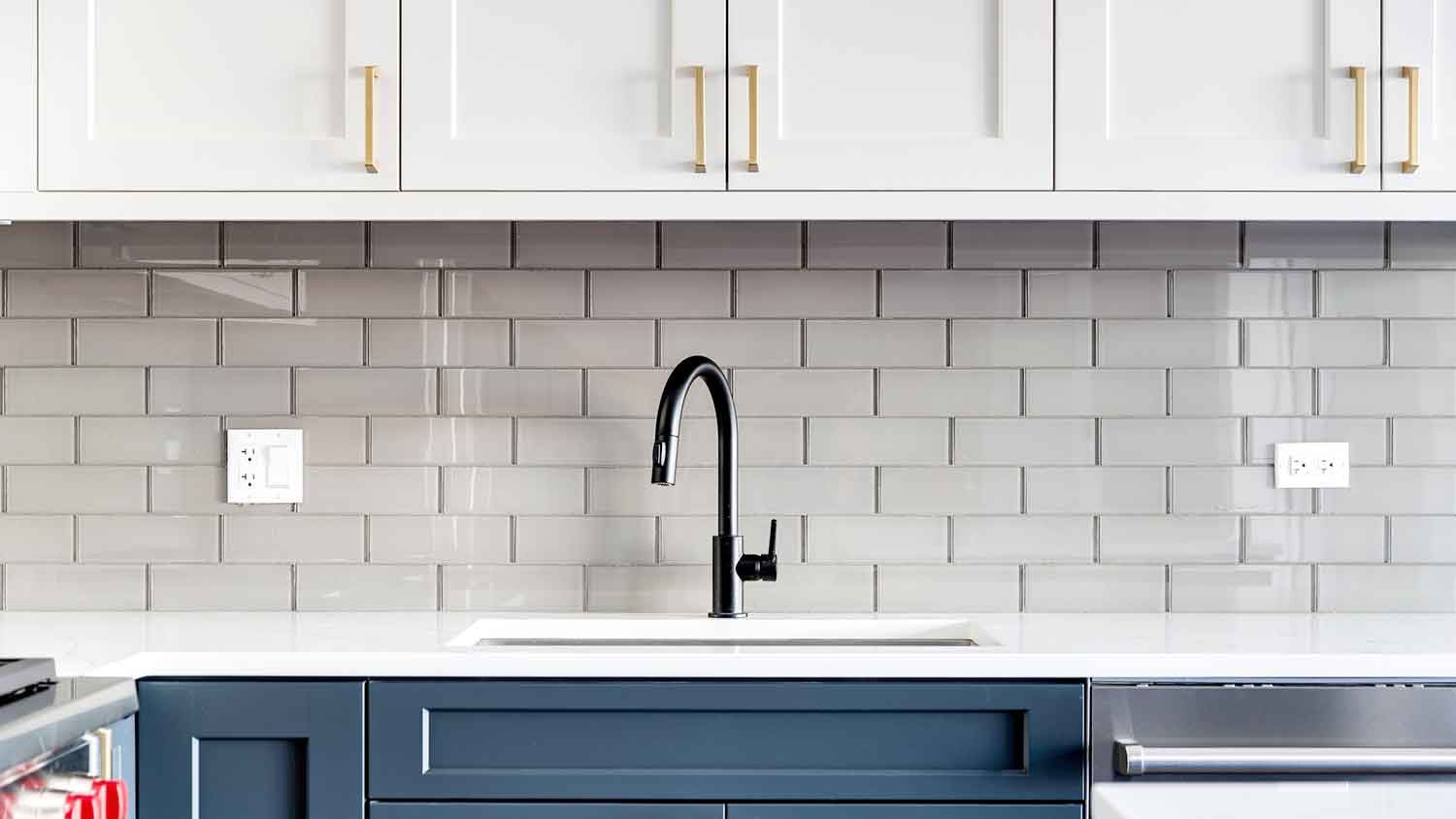
Damaged tiles should be fixed right away. In this guide, find out all of the different factors that affect your tile repair cost.
This simple step keeps tiled surfaces looking their best


Sealing grout helps protect against moisture and stains.
Sanded and unsanded grout needs a sealer; epoxy grout doesn’t.
Shower grout should be resealed every year.
Grout in other areas of your home should be sealed every couple of years.
Does grout need to be sealed? If you have (or are in the process of installing) tile in your kitchen or bathroom, you’re likely asking yourself this question. The answer is that it depends. Any tile with cement grout requires sealing to keep it clean, intact, and functional. Fortunately, sealing grout is a quick project you can do in a few hours.
Grout sealer strengthens your tile's grout to prevent moisture, stains, and odors from penetrating. This is especially important in areas with a lot of water exposure, such as the shower, but it could be just as important in high-traffic areas that could see a lot of spills, dirt, and debris.

You might wonder, do I need to pull out my tiling tools and seal my grout? Maybe you think your tile isn’t exposed to enough water or foot traffic for this step to be necessary. But the truth is, all types of cement grout should be sealed. This is because cement-based grout is porous and can absorb liquids, dirt, and debris. Over time, this can lead to staining, odors, and mold growth.
The cost to install tile floor is much more than the cost of buying and using grout sealer, so you’ll save money by sealing your grout according to the manufacturer’s directions.
For shower tiles, grout should be sealed annually, since the area is exposed to lots of water. For other types of tiles, sealing the grout every couple of years should suffice. Learning how to seal grout is a quick DIY project you can do on the weekend. But if you don’t have the time, you can hire a tile contractor near you to complete the task.
Not all types of grout need to be sealed. Only sanded and unsanded grout—both of which are cement-based—require sealing; epoxy grout should not be sealed. When you look at shower tile ideas, factor in the cost of grout and sealant to decide which makes the most financial sense.
Epoxy is faster drying but is much more expensive, increasing your tile installation cost. It can also be difficult to work with and is usually best left to the professionals. On the plus side, epoxy grout is naturally non-porous and stain-resistant, so sealing it isn’t necessary.
If you aren't sure if you should seal grout, there's a simple test you can perform. You only need a few drops of water and a few seconds.
Spread the water on the grout and watch for color changes. If the grout darkens or becomes a different color, it’s not sealed. If the grout stays the same color, it was likely sealed recently and is protected.
In addition to the water test, you’ll know it’s time to seal or reseal your grout if you notice it’s gradually getting darker or changing color. Another telltale sign is grout that becomes more difficult to clean or takes on stains.
From average costs to expert advice, get all the answers you need to get your job done.

Damaged tiles should be fixed right away. In this guide, find out all of the different factors that affect your tile repair cost.

Whether it’s on your floor, walls, or shower, ceramic tile can add style to your space. So, how much does ceramic tile installation cost? Let’s break it down.

Tile varies dramatically in price, but there’s something for every budget. This guide will help you plan for tile installation costs, no matter the project.

If you’re wondering how long it takes for grout to dry, our guide has the answers. Letting grout dry and cure completely ensures a long-lasting tile job.

Choosing between different types of tile adhesive is an important part of any tile job. Here’s how to pick the best tile glue for your project.

Discover the key differences between acrylic versus silicone caulk to choose the right sealant for your next DIY project.